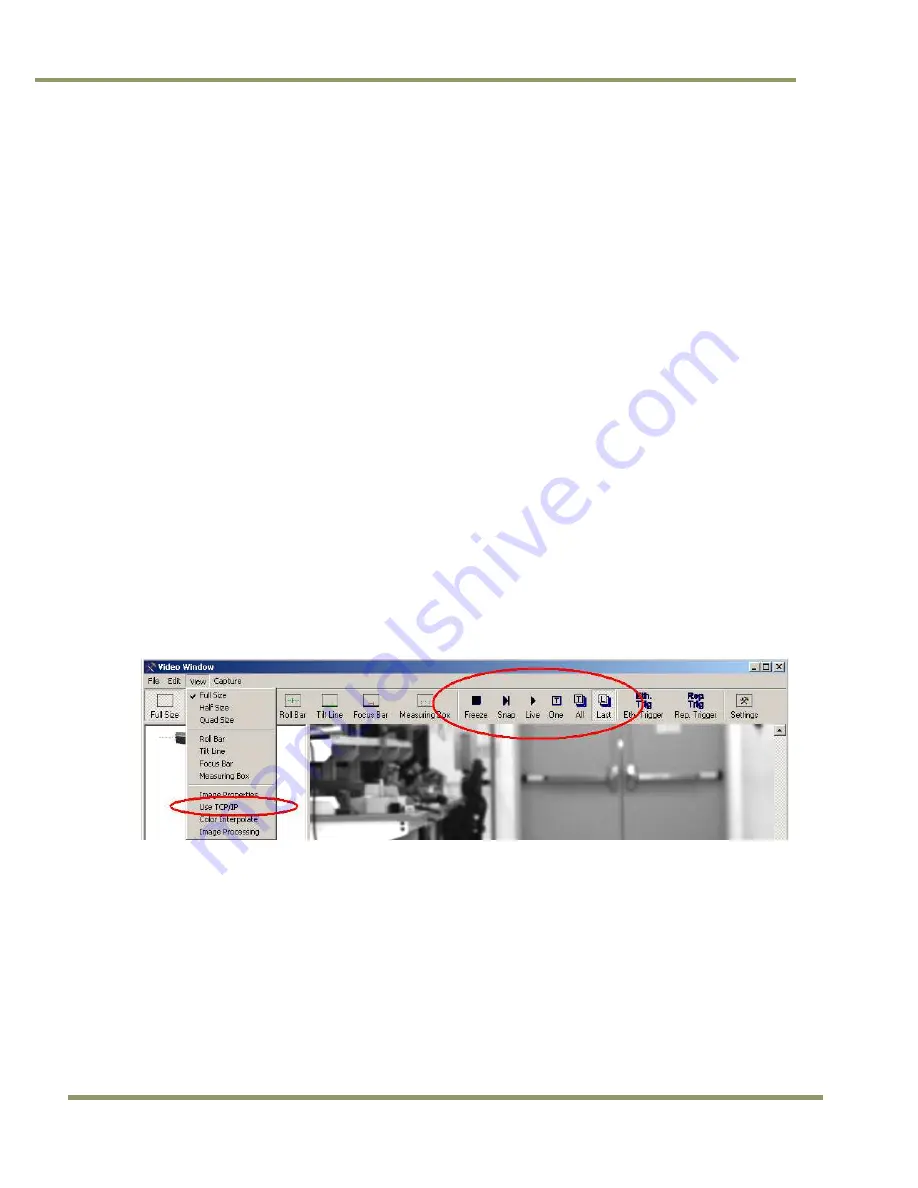
VISCAM 1000 Systems
50
Appendix E
9
Appendix E: Application Note – Avoiding Conflicts Between ENSetup and
Lane Controller During Debugging
This Application Note covers the impact of ENSetup software running in parallel to the normal lane
controller operation with FTP file transfer.
1. General Instructions for use of ENSetup Software
ENSetup software is used only for the following 3 purposes;
Initial setup of the camera (lens focus, FOV and zoom adjustment), or
Firmware upgrade, or
Troubleshooting.
EN camera uses CONTROL PORT (TCP port 1400) for all command/parameter controls and image transfer as
well as TEST PORT (UDP port 1406) for fast setup image transfer.
As soon as the ENSetup discovers the cameras in the network, the software opens CONTROL PORT and TEST
PORT. The camera is a server and the ENSetup is a client in this case. If the lane controller opens the
connection of CONTROL PORT with the camera, this is a 2
nd
client for the camera (camera = server.)
From the camera’s point of view, 2 clients (ENSetup and Lane Controller) are connected to the server (=
camera.) If there are any error messages from the camera, the camera sends the same error message to all
clients.
If ENSetup sends an Ethernet trigger, the camera sends TRIGGER_ACK and DATA_READY messages to the
Lane Controller as well.
In summary, ENSetup is NOT intended to be used while the lane controller is running, if you cannot afford
to disturb the normal tolling transaction. However, if you have to monitor the live or asynchronously
captured images for debugging purposes, please follow the general steps below.
2. UDP image (TEST PORT)
Uncheck “Use TCP/IP” option under View menu item.
Then, the camera sends images over TEST PORT. This TEST PORT maximizes the frame rate of the image.
Primary usage of this PORT is for initial lens adjustment such as focusing and zoom. Within the camera’s
subnet, this is the fastest method of capturing images. If you wish to monitor the image of the camera
outside of camera’s subnet, the router may block the UDP image. Use TCP in this scenario. See the next
“TCP image” section for the details.
“Snap”:
Take one snapshot immediately.
“Live”
Capture continuous image. If it is a slow PC or low-bandwidth
network, please use “interpacket delay” register.





































